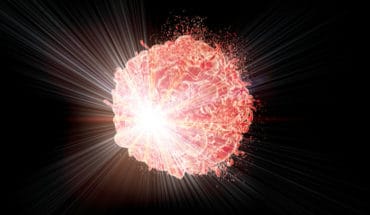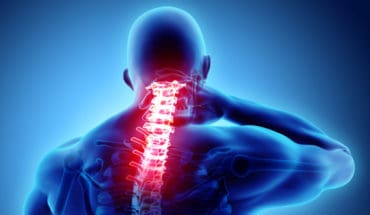Many evolutionary biologists believe that a diet rich in red meat eaten by our ancestors was responsible for the dramatic increase in the size of our brains compared to other plant-eating primates. Gorillas, which have a plant-based diet for example, may grow to sizes three times bigger than us, but their brains are far smaller than the human brain. Studies show that it would have been biologically impossible for humans to evolve such a large brain on a raw, vegan diet and eating meat was a crucial element in the evolution of mankind.
Studies show that it would have been biologically impossible for humans to evolve such a large brain on a raw, vegan diet and eating meat was a crucial element in the evolution of mankind.
‘This is because red meat is an excellent source of energy – although the brain is just two per cent of our body weight, it uses about 20 per cent of our energy intake,’ explains Professor Robert Pickard, Emeritus Professor of Neurobiology at the University of Cardiff, who sits on the Meat Advisory Panel, an advisory board of health professionals funded by British meat producers. ‘Red meat from grass-fed cattle is also a source of polyunsaturated fatty acids, including a type of long-chain Omega-3 unsaturated fat called DHA which is vital for brain development.’
‘There are two active forms of long-chain Omega-3s in the body, EPA and DHA. DHA is the most abundant Omega-3 fatty acid in the brain and low levels of DHA can adversely affect various aspects of cognitive function and mental health, especially in young people and children.’
Grass fed red meat, which you can find in most supermarkets in their organic ranges, is more expensive but it means that the animal has been able to run about and graze outside, rather than being kept in sheds and fed on concentrates,’ explains Piriya Tew, a registered dietitian. ‘This does make a difference to the fat and vitamin concentration of the meat,’
Red meat is also good for the brain because it is a rich source of Vitamin B12, which is not found in most vegetables and cannot be produced by the body. ‘B12 can only be found from an animal source or a microbiological source,,’ explains Professor Pickard. ‘You can’t repair brain cells without it and it is involved in the replication of the genetic code of cells – DNA.’
A study published in the British Journal of Nutrition in 2013 concluded that the usual dietary source of vitamin B12 is animal products including milk and eggs and those who choose to omit or restrict these products are destined to become vitamin B12 deficient.
A study published in the British Journal of Nutrition in 2013 concluded that the usual dietary source of vitamin B12 is animal products including milk and eggs and those who choose to omit or restrict these products are destined to become vitamin B12 deficient.
But meat may be the most important source, because evidence suggests that relying on milk products and eggs to get B12 in your diet can leave you deficient. In fact, in another study, published in 1982 in the Annals of Nutrition and Metabolism, , 92 per cent of vegans and 47 per cent of lacto-ovo vegetarians, ie vegetarians who eat milk products and eggs, were deficient in this critical brain nutrient. ‘Being deficient in B12 does have serious health implications’, says Professor Pickard. ‘If your levels are just slightly lower than they should be, you may have symptoms like poor memory, depression and fatigue.’
Although you only need small amounts of B12, older people over the age of 60 find it more difficult to absorb B12 through the gut because they start to produce less of a special factor found in the stomach. This factor encourages absorption of B12. ‘It’s particularly important that older people eat red meat because they need a rich source to top up their reserves’, says Professor Pickard.
Piriya Tew agrees that older people can benefit from eating red meat which is a rich source of B12 although synthetic forms of the vitamin are widely available and are often added to cereals. They can also be taken as supplements. ‘Long-term deficiency of B12 can permanently damage the brain and the central nervous system.
‘The best source is liver. A 70 gram serving of beef liver contains just under 70 micrograms of Vitamin B 12 which is far more than 2 micrograms considered to be the maximum required by the Department of Health, which also states you should be able to get enough of this vitamin from a balanced varied diet.’
- Biden Declines Second Term: Health Concerns - 23rd July 2024
- New catheter coating stops bacteria cells from swarming - 10th June 2024
- AI-designed catheters could dramatically reduce urinary tract infections - 10th June 2024






